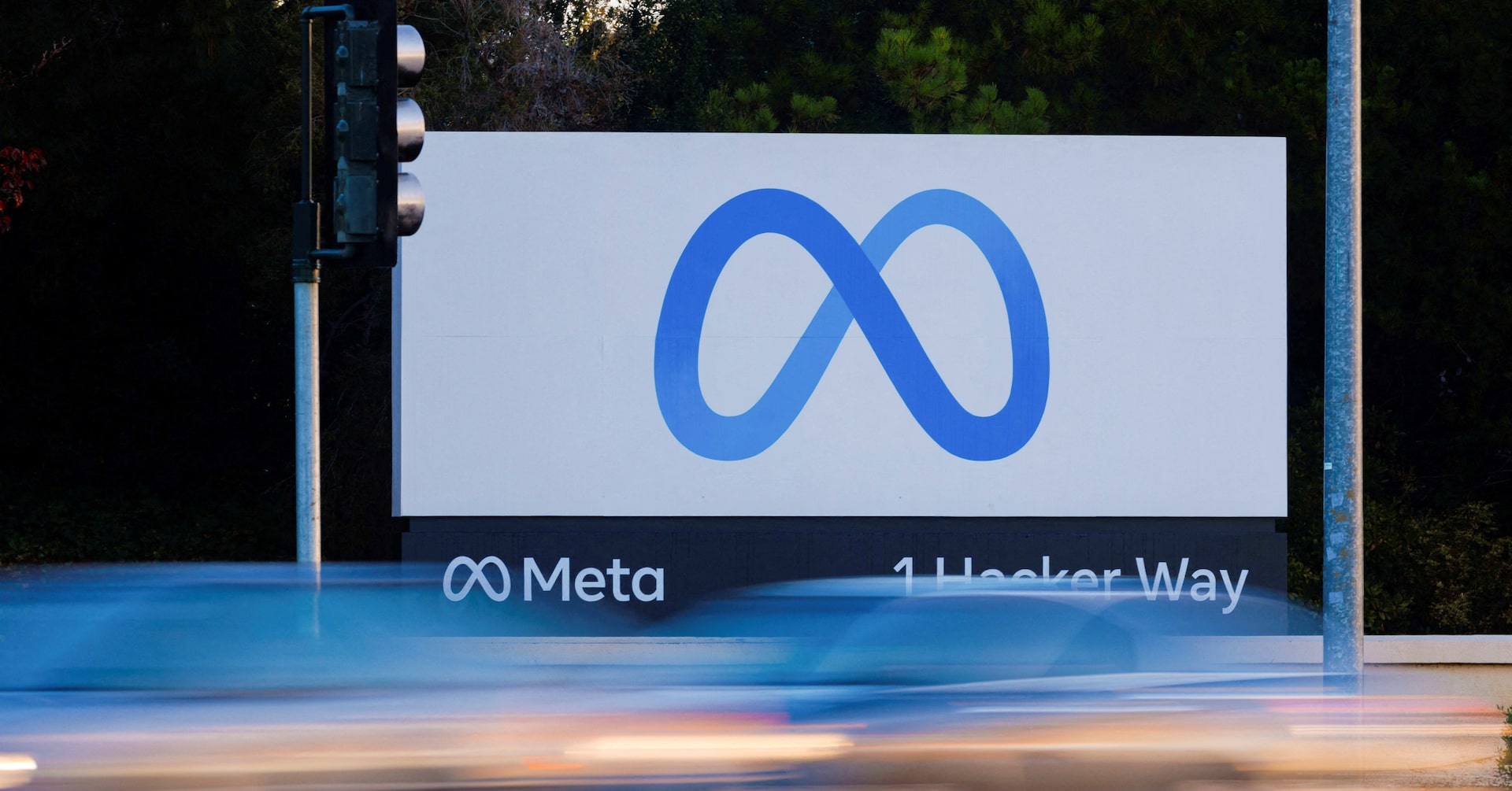Meta's Antitrust Battle: Examining The WhatsApp And Instagram Acquisitions

Table of Contents
The WhatsApp Acquisition: A Case Study in Antitrust Concerns
Market Dominance and Stifled Competition
Before its acquisition by Facebook (now Meta) in 2014, WhatsApp had already established itself as a leading messaging app, boasting a massive user base. However, concerns arose that the acquisition could stifle competition. Meta's acquisition effectively removed a significant potential competitor from the market, potentially limiting innovation and user choice.
- Limited interoperability: WhatsApp's integration within the Meta ecosystem has resulted in limited interoperability with other messaging services, creating a walled garden effect. Users are often locked into the platform, reducing competition.
- Data sharing and leverage: The acquisition raised concerns about data sharing and the potential for Meta to leverage user information across its platforms, creating a powerful data advantage. This raises significant privacy concerns as well as antitrust concerns.
- Suppression of innovation: The removal of a major competitor potentially stifled the development of innovative messaging app alternatives. Smaller players struggled to compete against the established giant, hindering innovation in the messaging sector.
Data Privacy Concerns and Antitrust Implications
The WhatsApp acquisition further complicated already existing concerns around data privacy and its implications for antitrust law. Meta’s ability to access and utilize WhatsApp user data sparked controversy.
- End-to-end encryption debates: While WhatsApp utilizes end-to-end encryption, this doesn't fully address concerns about metadata collection and the potential for law enforcement access. The implications of this for user privacy remain a point of contention.
- Data aggregation and profiling: The integration with other Meta platforms allows for sophisticated data aggregation and user profiling, raising concerns about targeted advertising and the potential for manipulation. This massive data pool strengthens Meta's competitive advantage.
- Regulatory responses: Numerous regulatory bodies, including the European Union and the United States, have launched investigations and imposed fines related to data privacy and antitrust violations stemming from the WhatsApp acquisition. This ongoing scrutiny highlights the severity of the concerns.
The Instagram Acquisition: A Similar Trajectory of Antitrust Scrutiny
Eliminating a Potential Competitor
The acquisition of Instagram in 2012 followed a similar pattern. Instagram, a rapidly growing photo-sharing platform, posed a potential threat to Facebook's dominance in the social media market. The acquisition effectively neutralized this threat.
- Integration into the Meta ecosystem: Instagram's features and user base were seamlessly integrated into the broader Meta ecosystem, strengthening Meta's position and further limiting competition.
- Reduced incentives for competitors: The acquisition significantly reduced the incentives for other companies to invest in developing similar photo-sharing platforms. This consolidation limited innovation and choice.
- Stifling innovation in social media: By absorbing a rising competitor, Meta potentially stifled innovation in the social media sector, leaving users with fewer alternatives.
Impact on Market Competition and User Choice
The Instagram acquisition significantly impacted market competition and user choice within the social media landscape. Meta's control over both Facebook and Instagram created a dominant position, limiting diversity and innovation.
- Reduced competition and potential price increases (advertising): The lack of strong competitors in the social media market resulted in reduced competition, potentially leading to higher advertising prices for businesses and less choice for consumers.
- Limited innovation: Reduced competition hampered innovation, as Meta faced less pressure to improve its platforms or develop new features.
- Potential for algorithmic manipulation: Concerns arose regarding the potential for algorithmic manipulation, influencing user feeds and impacting user experience and engagement.
The Broader Implications of Meta's Acquisition Strategy and Antitrust Law
The Precedent Set by These Cases
The antitrust battles surrounding the WhatsApp and Instagram acquisitions have set important precedents for future tech acquisitions. Regulators globally are grappling with the challenges of policing the activities of powerful tech companies.
- Increased scrutiny of mergers and acquisitions: These cases have led to increased scrutiny of mergers and acquisitions within the tech industry, with regulators paying closer attention to the potential impact on competition and innovation.
- Development of stricter antitrust regulations: There is a push for the development of more robust and adaptable antitrust regulations specifically designed to address the unique challenges presented by the tech sector.
- Global harmonization of antitrust laws: There's an increased effort towards harmonizing antitrust laws across different jurisdictions to create a more consistent and effective approach to regulating global tech giants.
The Ongoing Debate on Competition and Innovation
The debate over Meta's acquisitions highlights the complex interplay between competition, innovation, and user experience. Balancing the potential benefits of mergers with the risks of monopolies remains a central challenge.
- Potential benefits of mergers and acquisitions: Mergers can lead to economies of scale, resource pooling, and potentially faster innovation in certain circumstances.
- Dangers of monopolies and reduced competition: However, monopolies can stifle innovation, limit user choice, and potentially lead to higher prices and less consumer-friendly practices.
- The role of antitrust laws: Antitrust laws play a critical role in striking a balance between fostering innovation and preventing the dominance of powerful companies.
Conclusion
Meta's acquisitions of WhatsApp and Instagram have sparked significant antitrust debates, raising concerns about market dominance, data privacy, and stifled competition. These cases serve as crucial precedents, highlighting the challenges regulators face in policing the activities of powerful tech companies. Understanding the nuances of Meta's antitrust battle is vital for anyone interested in the future of the tech industry and the role of competition in shaping innovation. Staying informed about ongoing developments in Meta's antitrust cases and related regulatory actions is critical. Continue to research and understand the ongoing complexities of Meta's antitrust battle to stay abreast of this important issue.

Featured Posts
-
 B2 B Payments Firm Pliant Announces 40 Million Series B Funding Round
May 13, 2025
B2 B Payments Firm Pliant Announces 40 Million Series B Funding Round
May 13, 2025 -
 2025 Cubs Heroes And Goats Game 25 Recap
May 13, 2025
2025 Cubs Heroes And Goats Game 25 Recap
May 13, 2025 -
 Raptors Lottery Odds Seventh Best Chance At Nba Draft Success
May 13, 2025
Raptors Lottery Odds Seventh Best Chance At Nba Draft Success
May 13, 2025 -
 Venezia Vs Atalanta Laga Tanpa Gol Jay Idzes Main Sepenuhnya
May 13, 2025
Venezia Vs Atalanta Laga Tanpa Gol Jay Idzes Main Sepenuhnya
May 13, 2025 -
 Dzherard Batler Luchshie Roli I Filmy Po Mneniyu Zriteley
May 13, 2025
Dzherard Batler Luchshie Roli I Filmy Po Mneniyu Zriteley
May 13, 2025
Latest Posts
-
 Republica Dominicana El Nudo Del Trafico Ilegal De Armas Hacia Haiti
May 14, 2025
Republica Dominicana El Nudo Del Trafico Ilegal De Armas Hacia Haiti
May 14, 2025 -
 Kosten Voor Informatie Over Nederlander Bayerns Uitdaging
May 14, 2025
Kosten Voor Informatie Over Nederlander Bayerns Uitdaging
May 14, 2025 -
 Trafico De Armas En Republica Dominicana Un Corredor Clave Entre Ee Uu Y Haiti
May 14, 2025
Trafico De Armas En Republica Dominicana Un Corredor Clave Entre Ee Uu Y Haiti
May 14, 2025 -
 Bayerns Onderzoek Naar Nederlander De Verrassende Prijs
May 14, 2025
Bayerns Onderzoek Naar Nederlander De Verrassende Prijs
May 14, 2025 -
 Informatie Over Nederlander Bayern Trof Hoge Kosten
May 14, 2025
Informatie Over Nederlander Bayern Trof Hoge Kosten
May 14, 2025
